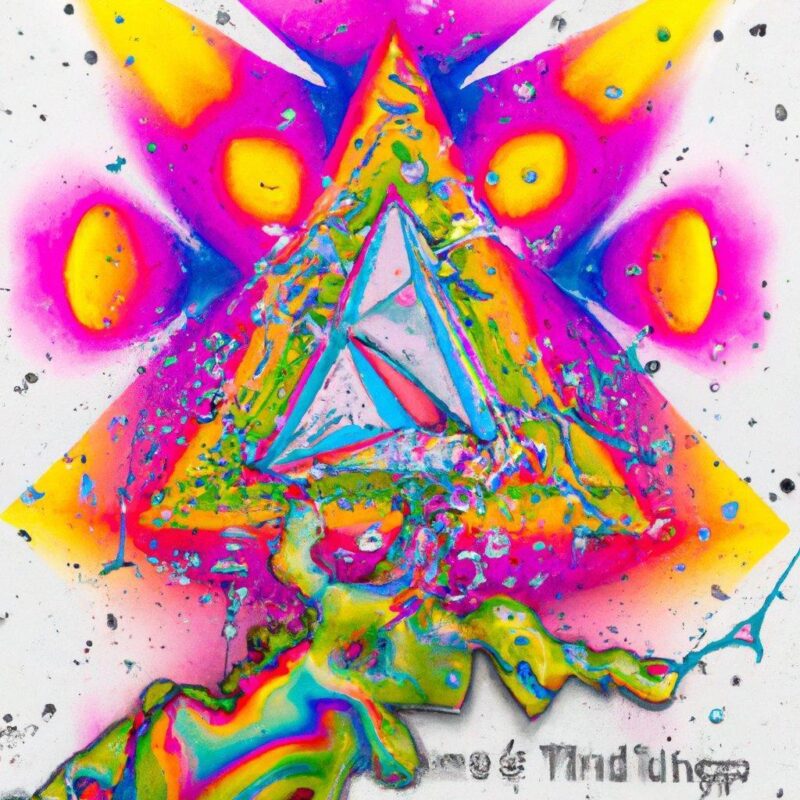Physiological side effects of taking DMT

DMT, also known as the Spirit Molecule, is a naturally occurring psychedelic substance that has been used by indigenous peoples for centuries to induce spiritual and mystical experiences. It has gained recent popularity in the world of psychedelics for its intense and mind-altering effects. However, taking DMT can result in a number of physiological side effects that can be challenging to deter. In this article, we’ll explore the different side effects you may experience when taking DMT and provide strategies for coping.
Understanding DMT and its effects on the body

DMT is a naturally occurring chemical found in plants, animals, and humans. It’s produced by the brain and other organs. It plays an important role in various physiological processes. While the biological function of DMT is not fully understood, it’s thought to be involved in regulating mood, perception, and consciousness.
The pharmacodynamics of DMT involve its effects on the neurotransmitter systems in the brain.The compound is quite similar in structure to serotonin, which is a neurotransmitter responsible for mood, appetite, and sleep regulation. Upon ingestion, DMT attaches itself to serotonin receptors, particularly the 5-HT2A receptor, causing psychedelic effects.
How does dimethyltryptamine affect the body?
DMT works by changing the functioning of the prefrontal cortex, which controls advanced thinking, self-awareness, and decision-making in the brain. Additionally, dimethyltryptamine has an impact on the amygdala, which is responsible for emotions and fear responses. This can result powerful emotions and vivid hallucinations frequently connected with DMT consumption.
When taken, DMT binds to serotonin receptors in the brain, resulting in alterations in mood, cognition, and perception. The effects of dimethyltryptamine are largely dependent on the dosage and method of usage. DMT can be consumed by smoking, snorting, or drinking as a brew with other plant materials.
Dimethyltryptamine is rapidly metabolized by the body, with a half-life of only about 15 minutes. This means that its effects are relatively short-lived, lasting only about 30-45 minutes
Common physiological side effects of taking DMT
One of the most common side effects of taking DMT is nausea and vomiting. This is because the compound can cause gastrointestinal distress and disrupt the normal functioning of the digestive system. To combat this, it’s recommended to eat a light meal a few hours before using dimethyltryptamine.
Taking DMT can also result in an increased heart rate and blood pressure. This is due to the way that the compound interacts with the cardiovascular system. It is important to monitor your heart rate and blood pressure during your dimethyltryptamine experience, as excessively high levels can be dangerous.
Some of the specific mechanisms that may contribute to the side effects of DMT include:
- Activation of the sympathetic nervous system: DMT can cause an increase in heart rate, blood pressure, and respiration rate, which are all controlled by the sympathetic nervous system. This activation can lead to physical symptoms such as sweating, nausea, and tremors.
- Disruption of normal brain function: DMT alters the activity of various neurotransmitters, including serotonin, dopamine, and norepinephrine. This can lead to changes in perception, thought patterns, and emotional responses, including anxiety, paranoia, and euphoria.
- Activation of the hypothalamic-pituitary-adrenal (HPA) axis: DMT has been shown to activate the HPA axis, which is involved in
Coping with physiological side effects
If you experience any physiological side effects of DMT, it is important to rest and take deep breaths. Focus on your breath and calm your mind to help reduce feelings of nausea or rapid heartbeat. Find a quiet place to lie down and close your eyes.
Hydrating and nourishing your body
Another important strategy for coping with DMT side effects is to hydrate and nourish your body. Drinking plenty of water can help to flush out any toxins from your system and alleviate feelings of nausea or other gastrointestinal distress. You can also try eating light snacks or drinking fruit juice to help maintain your energy levels.
What is Left?

DMT remains a mysterious and fascinating substance with many unanswered questions about its biological function and impact on the body. While more research is needed, our understanding of its pharmacodynamics has provided insight into its effects.
Taking DMT can result in a number of physiological side effects that can be challenging to navigate. However, by preparing yourself both mentally and physically, consulting with a medical professional, and knowing how to cope with common side effects, you can have a more successful and enjoyable DMT experience.

